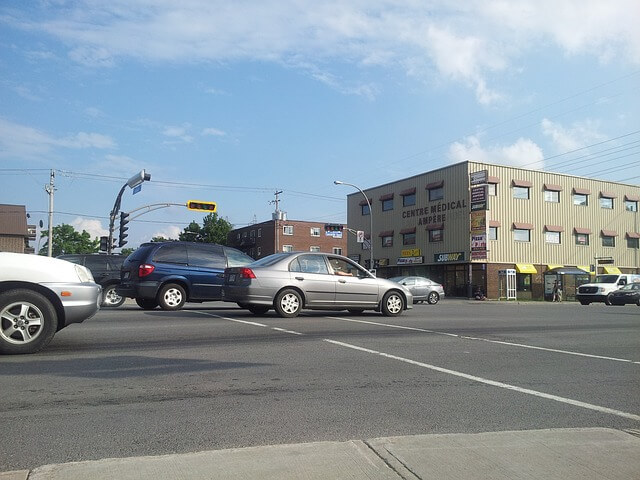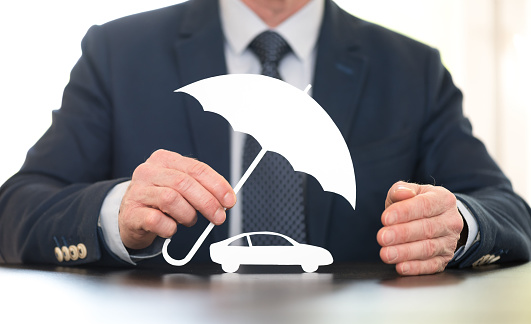There is no one answer to this question because insurance companies have different definitions of what constitutes full coverage. In general, full coverage auto insurance in Florida includes liability insurance, which pays for damages that you cause to other people or property in an accident.
Contents
It also typically includes collision and comprehensive insurance, which pay for damage to your own vehicle. Some insurers also consider other types of coverage, such as personal injury protection or uninsured/underinsured motorist coverage, to be part of a full coverage policy.
The best way to determine what is considered full coverage auto insurance in Florida is to contact different insurance companies and ask them for their definition. You can also ask your insurance agent or broker for their advice. Once you have a few different definitions, you can compare coverage options and choose the policy that best meets your needs.

What is liability insurance?
Liability insurance is the portion of a full coverage auto insurance policy that pays for damages that you cause to other people or property in an accident. It is required by law in Florida, and it protects you from having to pay out of pocket for damages that you are responsible for. Liability insurance typically includes two types of coverage: bodily injury liability and property damage liability.
Bodily injury liability
Bodily injury liability coverage pays for medical expenses and other damages that you are liable for if you cause an accident that injures another person. It can also pay for the other person’s lost wages if they are unable to work because of their injuries. Bodily injury liability coverage usually has two limits: per person and per accident. The per person limit is the maximum amount that the policy will pay for each person injured in an accident. The per accident limit is the maximum amount that the policy will pay for all injuries caused by one accident.
Property damage liability
Property damage liability coverage pays for damages that you cause to another person’s property in an accident. This can include damage to their vehicle, home, or other property. Property damage liability coverage usually has a limit, which is the maximum amount that the policy will pay for all property damage caused by one accident.
What is collision insurance?
Collision insurance is the portion of a full coverage auto insurance policy that pays for damage to your own vehicle if you cause an accident. It can also pay for damage caused by another driver who is uninsured or underinsured. Collision insurance typically has a deductible, which is the amount you have to pay out of pocket before the insurance company starts to pay. Collision insurance usually has a limit, which is the maximum amount that the policy will pay for all damage caused by one accident.
What is comprehensive insurance?
Comprehensive insurance is the portion of a full coverage auto insurance policy that pays for damage to your own vehicle that is not caused by an accident. This can include damage from fire, theft, vandalism, or weather. Comprehensive insurance typically has a deductible, which is the amount you have to pay out of pocket before the insurance company starts to pay. Comprehensive insurance usually has a limit, which is the maximum amount that the policy will pay for all damage caused by one event.
What are some other types of coverage that are often considered part of a full coverage policy?
In addition to liability, collision, and comprehensive insurance, there are other types of coverage that are often considered part of a full coverage auto insurance policy. These include personal injury protection, uninsured/underinsured motorist coverage, and roadside assistance. Each of these types of coverage has its own limit and deductible, so it’s important to understand what each one covers before you purchase a policy.
Personal injury protection
Personal injury protection (PIP) is a type of coverage that pays for medical expenses and other damages if you are injured in an accident, regardless of who is at fault. PIP coverage typically has a limit, which is the maximum amount that the policy will pay for all medical expenses and other damages. PIP coverage usually has a deductible, which is the amount you have to pay out of pocket before the insurance company starts to pay.
Uninsured/underinsured motorist coverage
Uninsured/underinsured motorist (UM/UIM) coverage is a type of coverage that pays for medical expenses and other damages if you are injured in an accident by a driver who does not have insurance or does not have enough insurance. UM/UIM coverage typically has a limit, which is the maximum amount that the policy will pay for all medical expenses and other damages. UM/UIM coverage usually has a deductible, which is the amount you have to pay out of pocket before the insurance company starts to pay.
Roadside assistance
Roadside assistance is a type of coverage that pays for services like towing or jump-starts if your vehicle breaks down. Roadside assistance coverage typically has a limit, which is the maximum amount that the policy will pay for all services. Roadside assistance coverage usually has a deductible, which is the amount you have to pay out of pocket before the insurance company starts to pay.
Conclusion
There is no one answer to the question of what is considered full coverage auto insurance in Florida because insurance companies have different definitions. In general, full coverage includes liability, collision, and comprehensive insurance, but some insurers also consider other types of coverage, such as personal injury protection or roadside assistance, to be part of a full coverage policy.
The best way to determine what is considered full coverage auto insurance in Florida is to contact different insurance companies and ask them for their definition. You can also ask your insurance agent or broker for their advice. Once you have a few different definitions, you can compare coverage options and choose the policy that best meets your needs.
- The winner of the Hottest Firefighter promises: “I’ll stay dedicated to saving lives.” - December 1, 2022
- Smiling influencer caught on camera kicking a dog apologizes for sharing the ‘cruel act.’ - December 1, 2022
- What is full coverage auto insurance in Florida? - November 14, 2022


